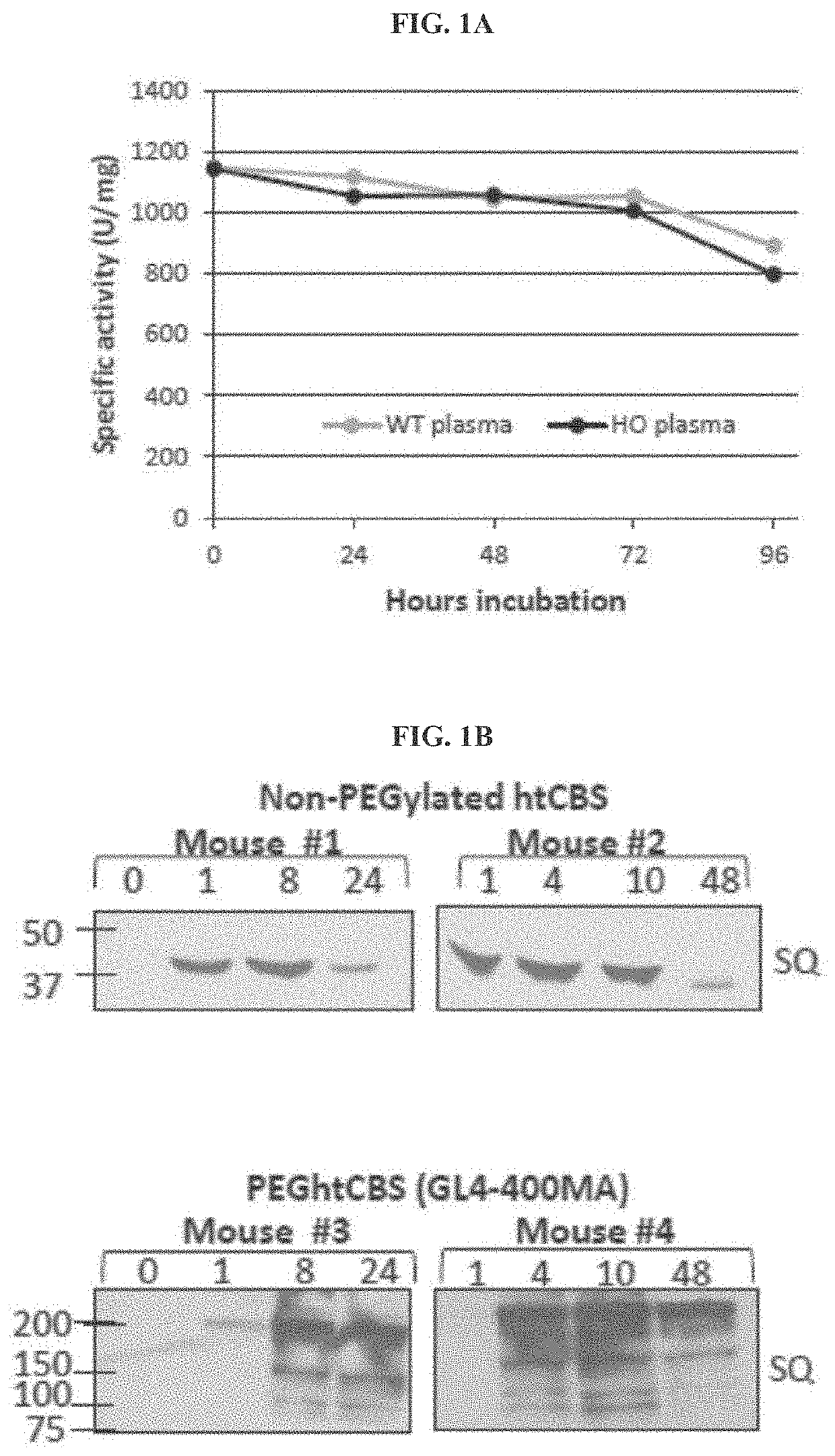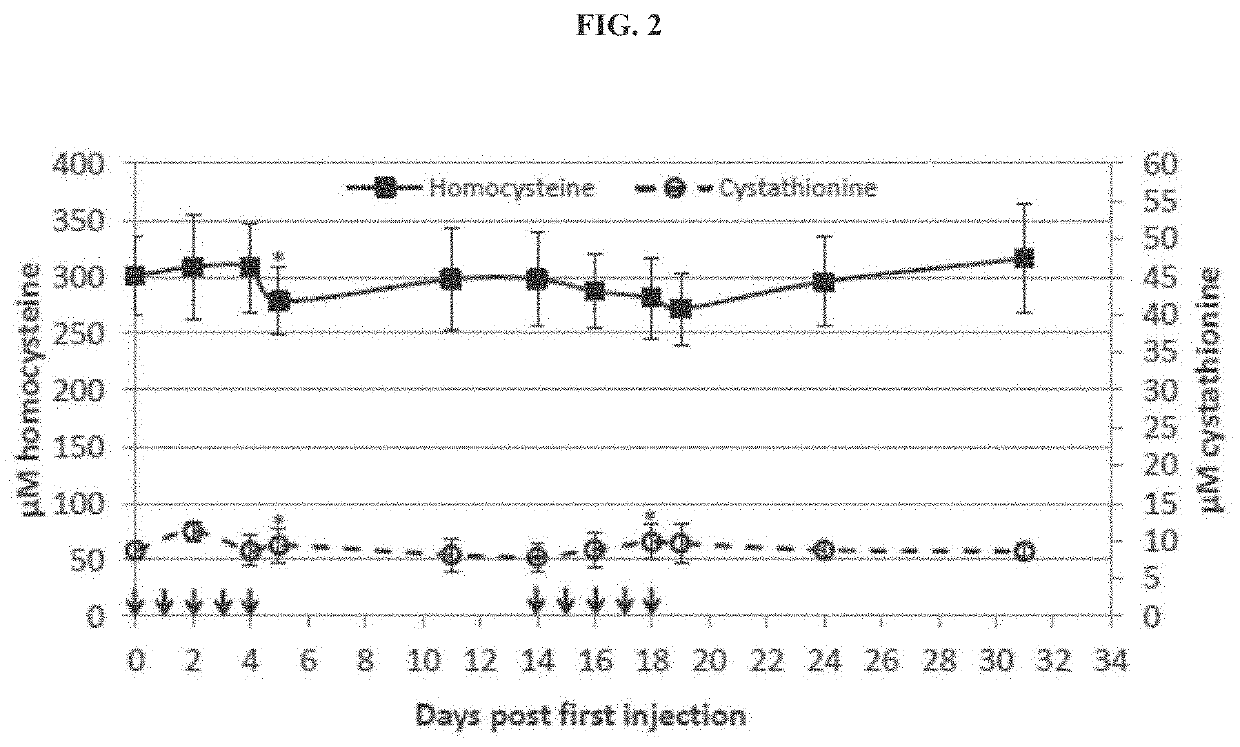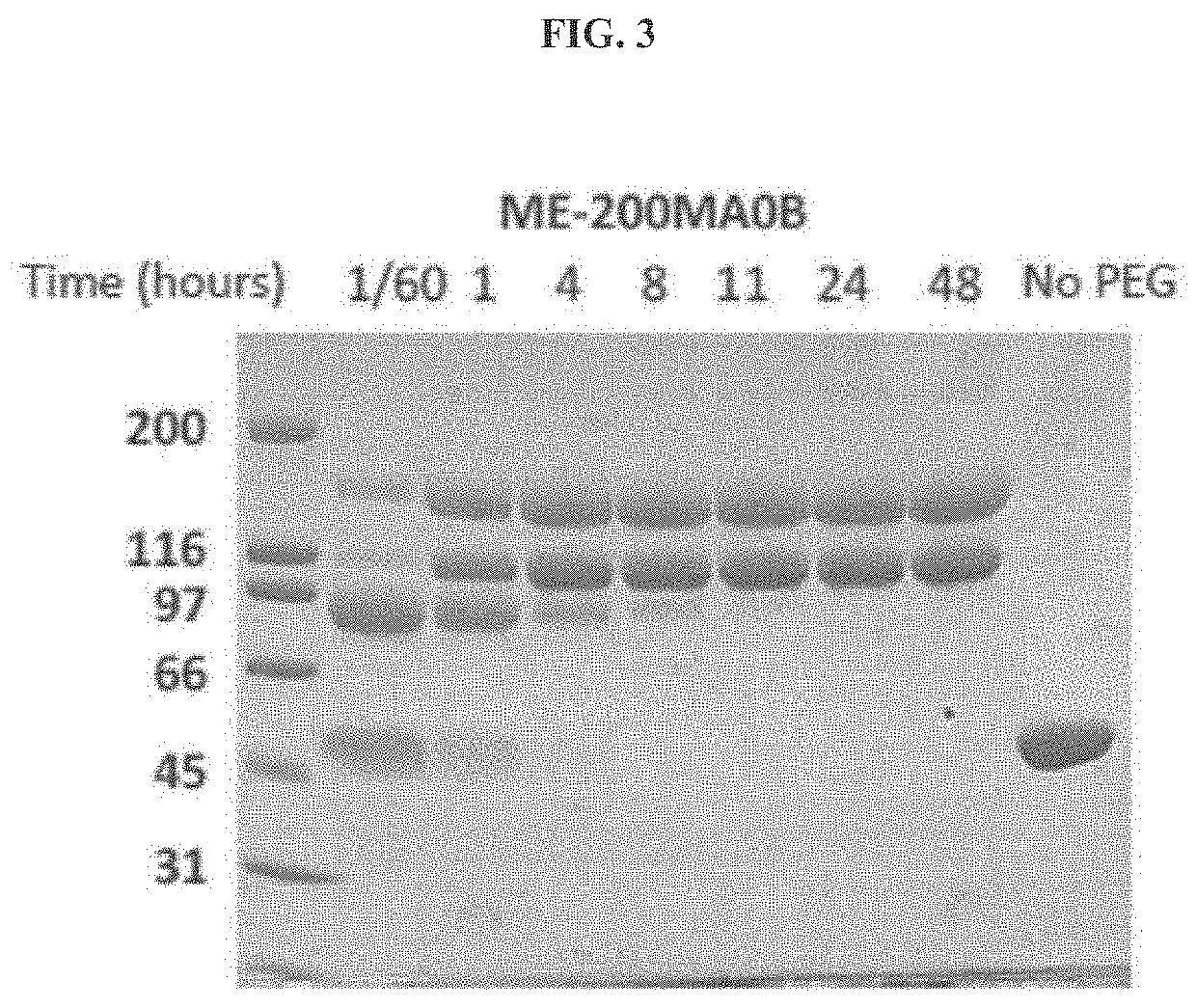Compositions and methods for treatment of homocystinuria
- Summary
- Abstract
- Description
- Claims
- Application Information
AI Technical Summary
Benefits of technology
Problems solved by technology
Method used
Image
Examples
example 1
tal Procedures
A. Construction of Sequence-Optimized, Truncated Human CBS in PET29A(+) Vector
[0144]As previously described in International Publication No. WO2014120770, the disclosure of which is incorporated herein by reference in its entirety, full length (551 aa) human CBS coding sequence was optimized for bacterial expression and cloned into the pUC57 vector following digestion with the EcoRV restriction enzyme, by GenScript USA Inc (NJ, USA). The CBS sequence was then amplified by PCR using primers A1 and A2 to generate a sequence coding for the truncated enzyme (aa 1-413). The PCR product was then digested with the restriction enzymes NcoI and XhoI, and ligated into the pET-28a(+) vector that was digested with the same enzymes. Cloning into the optimal NcoI site of pET-28a(+) results in a G to C mutation as compared to the CBS wild-type sequence. Site-Directed Mutagenesis kit (Stratagene, CA, USA) utilizing primers B1 and B2, was used to re-generate the wild type sequence (htC...
example 2
ention Time
[0169]A. Unmodified htCBS Exhibits a Short Retention Time in Circulation
[0170]The pharmacokinetic properties of a pharmacologically active substance that is administered to circulation is greatly affected by natural mechanisms of ADME. Rapid clearance of the injected molecule may greatly impact treatment efficacy and thus longer circulating half-lives are desired, which may translate into less frequent administrations or smaller doses that in turn minimize the side effects. To determine the pharmacokinetics of htCBS in plasma circulation, a single dose of 5 mg / kg was injected via subcutaneous (SC), intravenous (IV) or intraperitoneal (IP) routes to C57BL / 6J mice. Administration of htCBS via IV or IP routes exhibited the highest specific activity values during the first 4 hours post injection (observed peak plasma levels of up to 123 and 76 mU / μL, respectively; Table 2 shows Area Under Curve (AUC) values). The pharmacokinetic parameters calculated from plasma samples (Tabl...
example 3
ation of htCBS and Serum Levels of Homocysteine, Cystathionine and Cysteine
[0177]The ultimate goal for the use of htCBS for CBSDH is to lower the toxic tHcy load, to elevate cystathionine and cysteine levels. These changes are expected to prevent, reverse or delay the onset of CBSDH symptoms. Hornocystinuri a research, however, has long been hindered by a lack of a suitable animal model. Mice that are complete knockout for the mouse gene die within 2-3 weeks after birth. The HO (Human Only) mice are different from other knockout mice because, in addition to having the mouse gene knocked out, they express low levels of the human gene which allows their survival to adulthood (Maclean et al., 2010b. Mol. Genet. Metab. 101, 153-162). HO mice exhibit severe elevations of Hcy, methionine, S-adenosylmethionine, and S-adenosylhomocysteine and present with a concomitant decrease in plasma and hepatic levels of cysteine. Accordingly, these mice exhibit characteristics that in several aspects,...
PUM
| Property | Measurement | Unit |
|---|---|---|
| Time | aaaaa | aaaaa |
| Dimensionless property | aaaaa | aaaaa |
| Dimensionless property | aaaaa | aaaaa |
Abstract
Description
Claims
Application Information
 Login to View More
Login to View More - R&D
- Intellectual Property
- Life Sciences
- Materials
- Tech Scout
- Unparalleled Data Quality
- Higher Quality Content
- 60% Fewer Hallucinations
Browse by: Latest US Patents, China's latest patents, Technical Efficacy Thesaurus, Application Domain, Technology Topic, Popular Technical Reports.
© 2025 PatSnap. All rights reserved.Legal|Privacy policy|Modern Slavery Act Transparency Statement|Sitemap|About US| Contact US: help@patsnap.com



